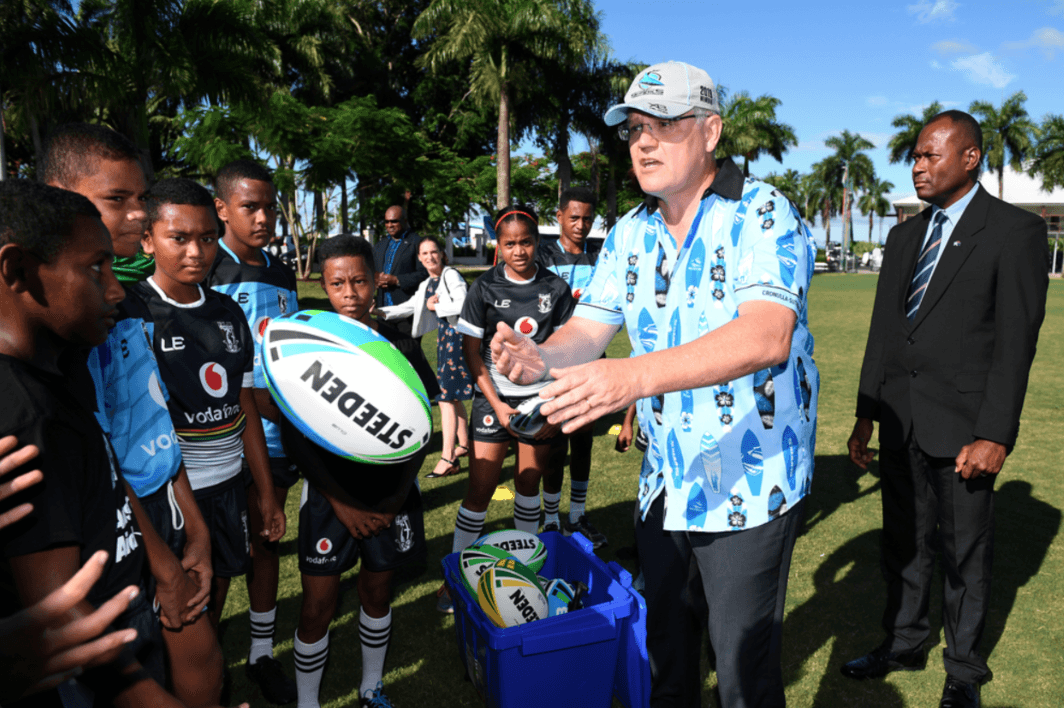SYDNEY—Australia will direct more foreign aid to develop the sport of rugby league in the Pacific, officials say, bolstering a soft power offensive against China’s growing influence in the region.
The plan, backed by Prime Minister Scott Morrison, aims to tap into a shared passion for the bruising game by funding more coaching clinics and exhibition matches on far-flung Pacific islands being wooed by China.





